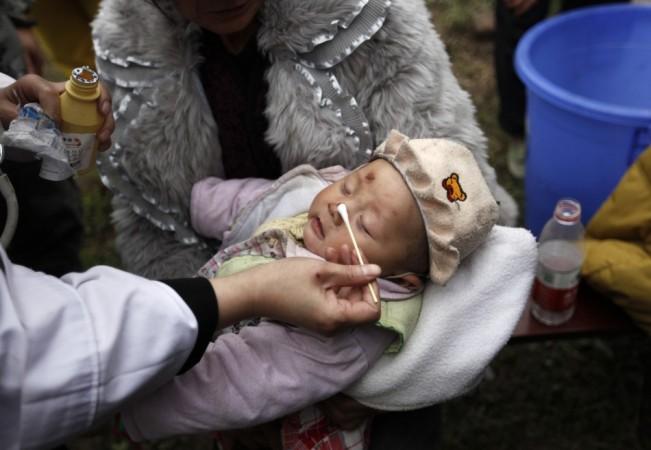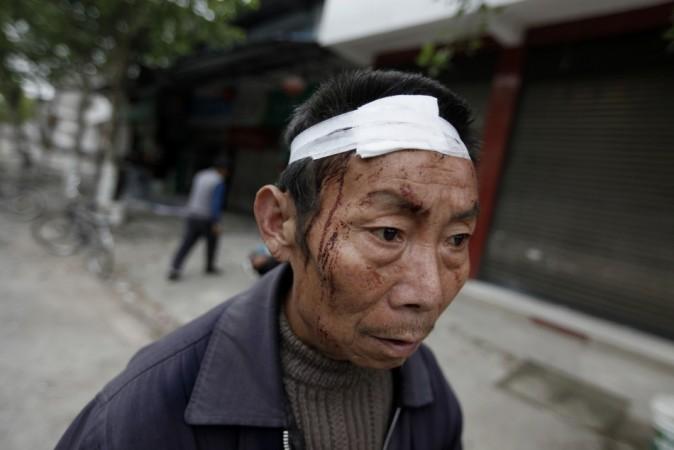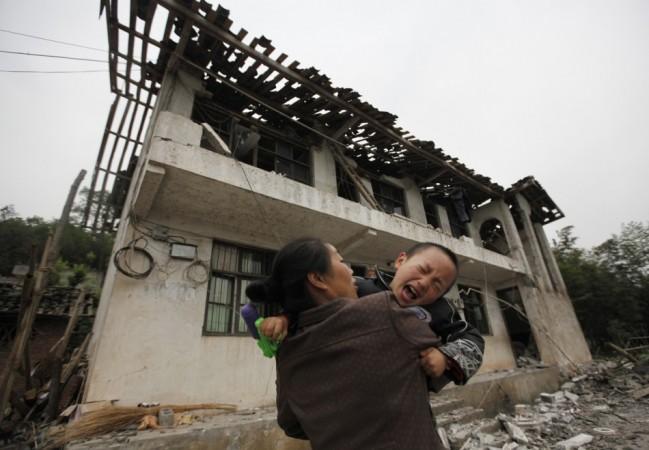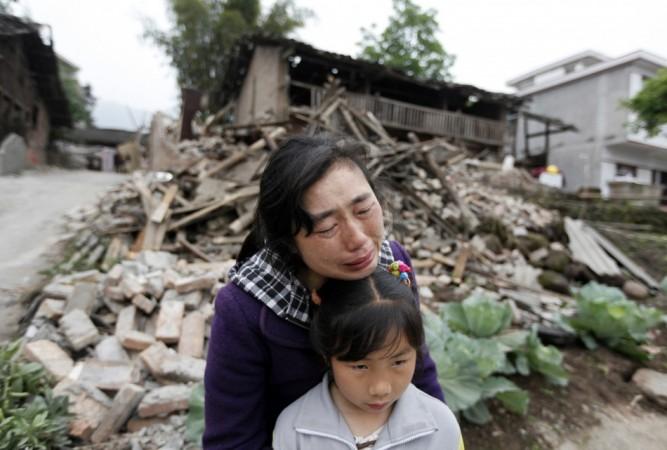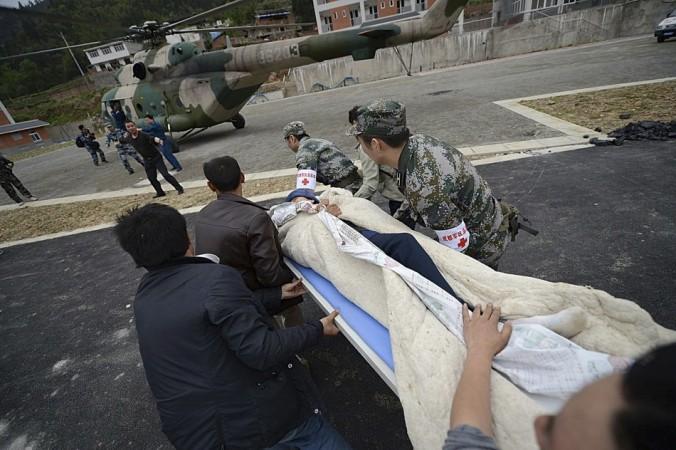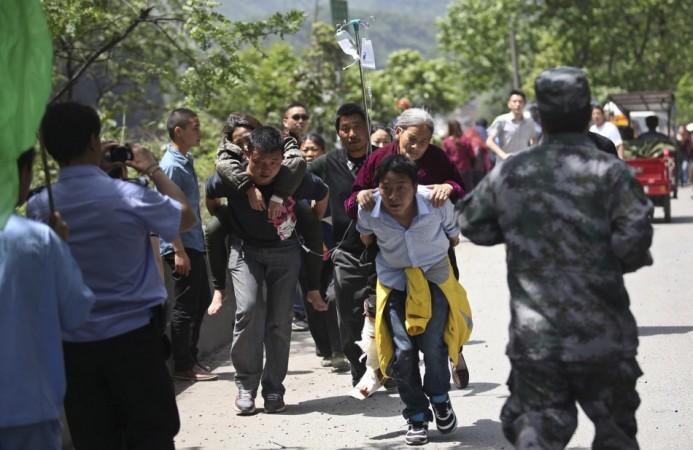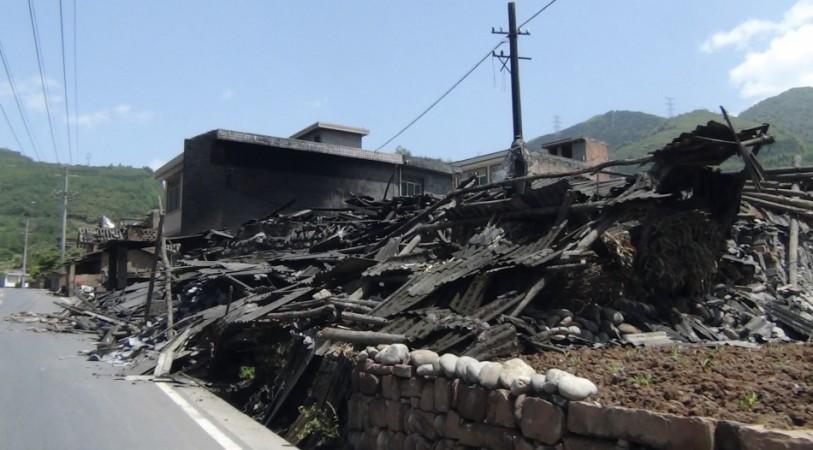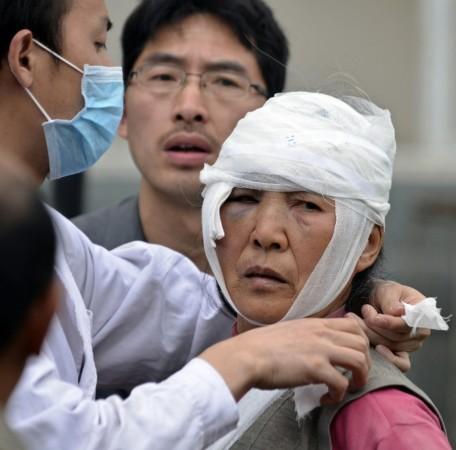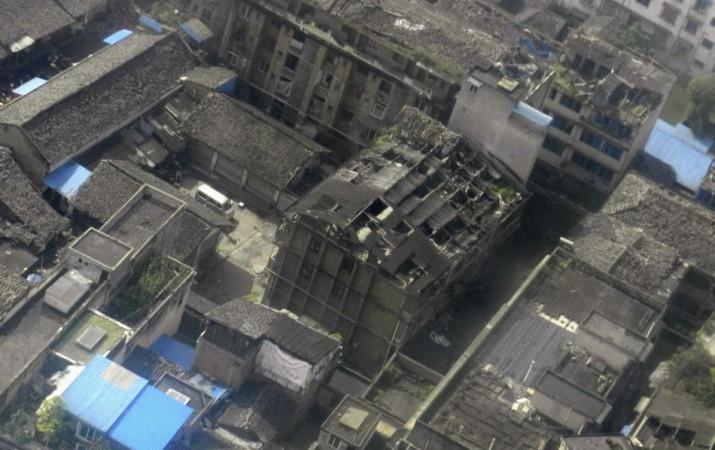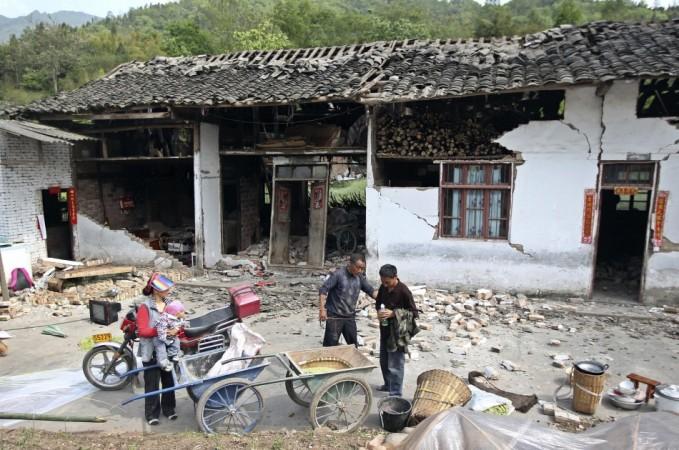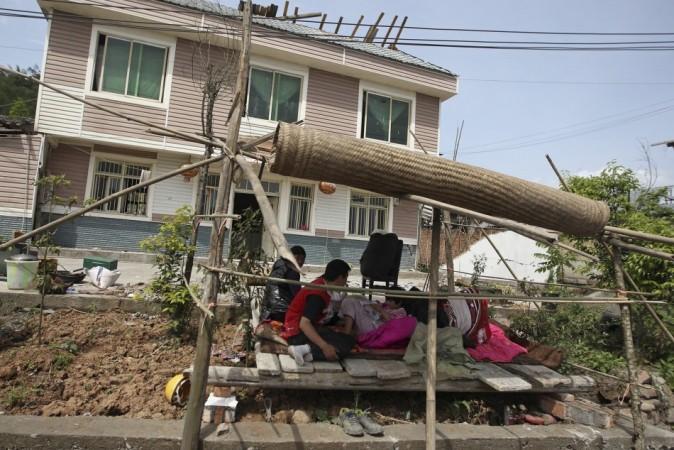The powerful earthquake that hit the south-western province of Sichuan in China on Saturday has claimed 203 lives and has left over 11,500 people injured.
The earthquake with a magnitude of 6.6 struck China at around 8 am local time, at a depth of around 13 kilometres (7.6 miles) in Lushan and Baoxing counties.
"We were just getting up and getting dressed in our dormitory when the building shook and I looked outside from our seventh-floor window and saw a row of houses collapsed," said Xu Yan, 22, a student at the Agricultural University in Ya'an told The New York Times.
The Chinese seismological bureau initially measured the quake's magnitude as 7 on the Richter scale. It was later estimated to 6.6 by the US Geological Service. The powerful quake was followed by a series of aftershocks which included one with a magnitude of 5.1 on the Richter scale.
The most affected area was Ya'an - a city with rich historical references. It is considered to be one of the origins of China's tea culture and the main centres involved in the protection of its Giant Panda population.
In 2008, Ya'an was hit by a huge earthquake which claimed the lives of around 70,000 people.
Chinese Premier Li Keqiang flew to Ya'an from Beijing to direct rescue efforts, Xinhua reported. Li also visited the injured at hospitals and tents where they are receiving treatment.
Chen Yong, vice director of the Ya'an city government earthquake response office, stated that the death toll is expected to rise.
A troop comprising of 6,000 began rescue operations and are cleaning the debris of houses and buildings that were destroyed in the powerful quake.
The rescue operation team has so far dug out 54 people alive, including two children and a pregnant woman, from several collapsed buildings and houses.
Over 1.5 million people have been affected by the earthquake, reported the Chinese Earthquake Administration. In the aftermath of the quake, Chengdu airport was shut down but was reopened within hours.
Earlier in 2010, a 7.1 magnitude earthquake killed 2,700 people in Yushu, a largely Tibetan region in northwest China.
